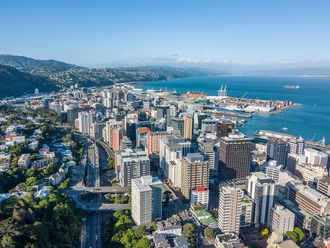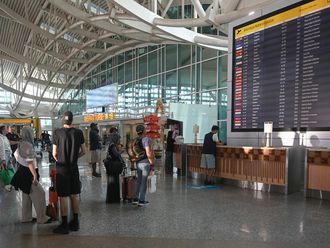Dhaka Bangladesh’s garment manufacturers overnight shut down indefinitely some 300 factories at Ashulia industrial district at the outskirts of the capital after days of worker unrest for wage hike.
“We have decided to close down more than 300 factories at Ashulia industrial area for an indefinite period considering security for both the individual and the industry,” Bangladesh Garment Manufacturers and Exporters Association president Mohammad Shafiul Islam said in a statement on Saturday night.
He said the continued workers unrest forced them to “take the harsh decision to restore order” after talks between workers and owners had failed to break the deadlock over the wage hike.
Ashulia, the hub of most of the country’s biggest export oriented garment factories employing around half a million workers, witnessed violence for the past five days when police fired teargas and rubber bullets and used water cannons on protesting workers.
At least 250 people including policemen were injured during the clashes when protesters vandalised dozens of vehicles and barricaded a major highway linking the capital with the north-western region.
Minimum wage
The BGMEA leaders said they would reopen the factories only after authorities expose to trial the “culprits” and provide foolproof security to the units as their efforts to resolve the issue of wage increases and other benefits through discussion did not produce any results.
The owners nearly doubled the minimum wage for millions of garment workers to 3,000 taka (Dh135) a month after a government mediated n negotiation following violent protests in 2010.
But the workers who work 10-16 hours a day, six days a week were demanding a 50 per cent pay hike and subsidised food to cope with the rising cost of living.
Financial analysts and business leaders feared the development to cause a negative impact on exports, which fell for the third month in a row in May as the Eurozone debt crisis continued to subdue the country’s economy.
The garments industry fetched over $19 billion for the impoverished country last year appearing as the mainstay of the economy of Bangladesh, accounting for 80 per cent of its total shipments.
The low labour costs helped Bangladesh join the global supply chain for low-end textiles and clothing, manufacturing garments for international brands such as JC Penney, Wal-Mart, H&M, Kohl’s, Marks & Spencer and Carrefour.












